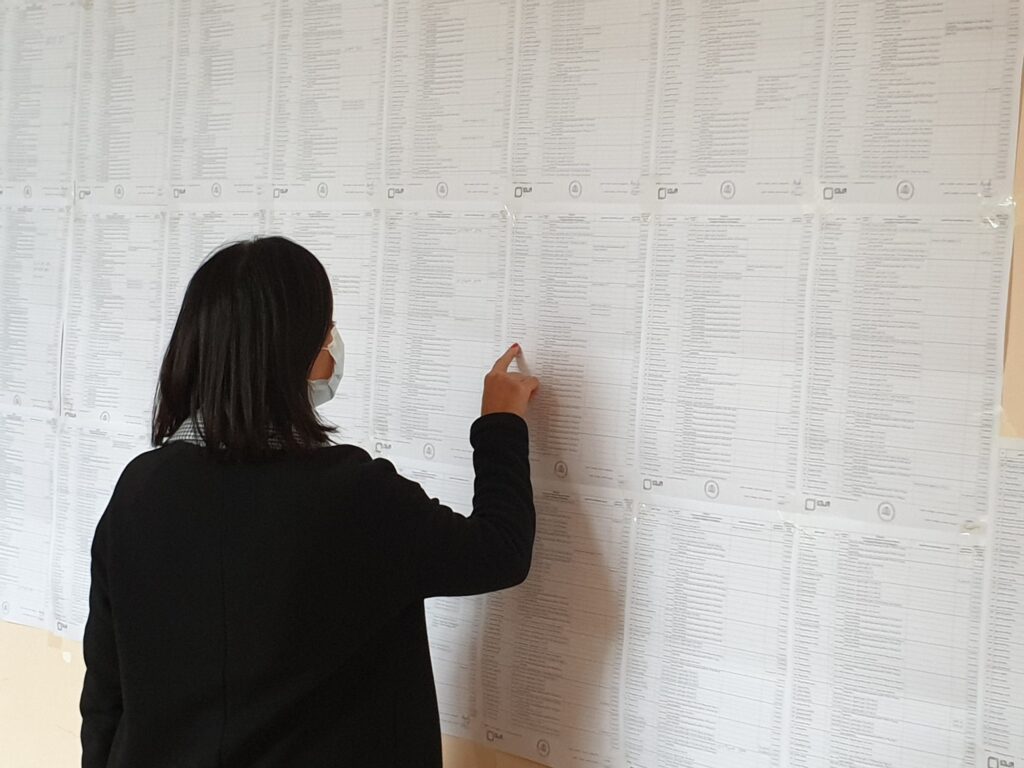#DemocracyDrinks: Disrupting Democracies

photo: OSCE/Katya Andrusz
Russia’s full-scale attack on Ukraine is symptomatic of the broader tensions in the Eastern Neighbourhood. What are the tensions however, and what implications do these tensions hold for the EU-aspiring neighbouring countries like Georgia and Moldova?
Join the conversation on 26 September when NIMD, the Hague Humanity Hub and the Netherlands Helsinki Committee host the next edition of our monthly Democracy Drinks the Hague event.
For this edition we are happy to share that we shall be joined by Amy Eaglestone, PDH candidate at the University of Birmingham.
We asked Amy three questions to already give us a sneak-peek into the issues she will be addressing at the Drinks event.
How is Russia exploiting existing polarization and what does it mean for Democracy in the region?
Well, Russian meddling in the region is nothing new of course, and Russian destabilization efforts have been well documented over the past years. What we are seeing now because of the war in Ukraine, is that governments are being forced to choose between Europe and Russia, and that is alienating the electorate. In Moldova for instance Russia is taking advantage of growing dissatisfaction has stepped up its efforts to disrupt the national government through what is known as hybrid warfare, a range of activities from military threats and economic pressure to disinformation and cybercrime. With the aim of deepening dissatisfaction and enflaming political polarization.
How are countries responding to the Kremlin’s interference?
Well, in Moldova, with the EU assessment and the general elections coming up soon, the Government is working hard to counter Russia’s ongoing exploitation of the rising dissatisfaction among the population. In the long term of course, it is developing reforms that address structural issues such as corruption and oligarchization. In the short term, it’s working to do things like actively provide accessible and reliable information to the public and pursue alternative energy sources. But, to do this it is heavily relying on EU and US financial aid.
What can the international community do?
That is exactly what I would like to discuss with the democracy support community at the event. How can we turn the tide and contribute to stability and democracy in the long term in the Eastern Neighbourhood?
The answer is obviously not easy. Governments in that region need time to implement the much-needed reforms. But that is time they don’t have, with elections around the corner, EU memberships at stake and Russia’s increasing pressure. Both the governments in the region and their Western partners would do well to strengthen pro-European political opposition, that can offer voters viable alternatives and create potential coalition partners for the future.
However, with viable alternatives, or rather perceived alternatives, will democracy support alone suffice? Or do Europe and their allies need to take a stronger stand and use hard power themselves to counter Russian influence? Interested to learn more and join the conversation?
Join us from 17:00 onwards at the Hague Humanity Hub on 26 September.
Sign up via Eventbrite to join the event here.
What are the Democracy Drinks?
Hosted in cities including Washington DC, Berlin, Brussels, and Kathmandu, Democracy Drinks are monthly informal networking events bringing together fellow thinkers, advocates, and enthusiasts in pro-democracy spaces. It is a great way of making new contacts and catching up with people you know; for testing ideas and planning actions; for moral support and inspiration. Make sure to invite friends and colleagues that work on or are interested in defending values like democracy, rule of law, human rights.
